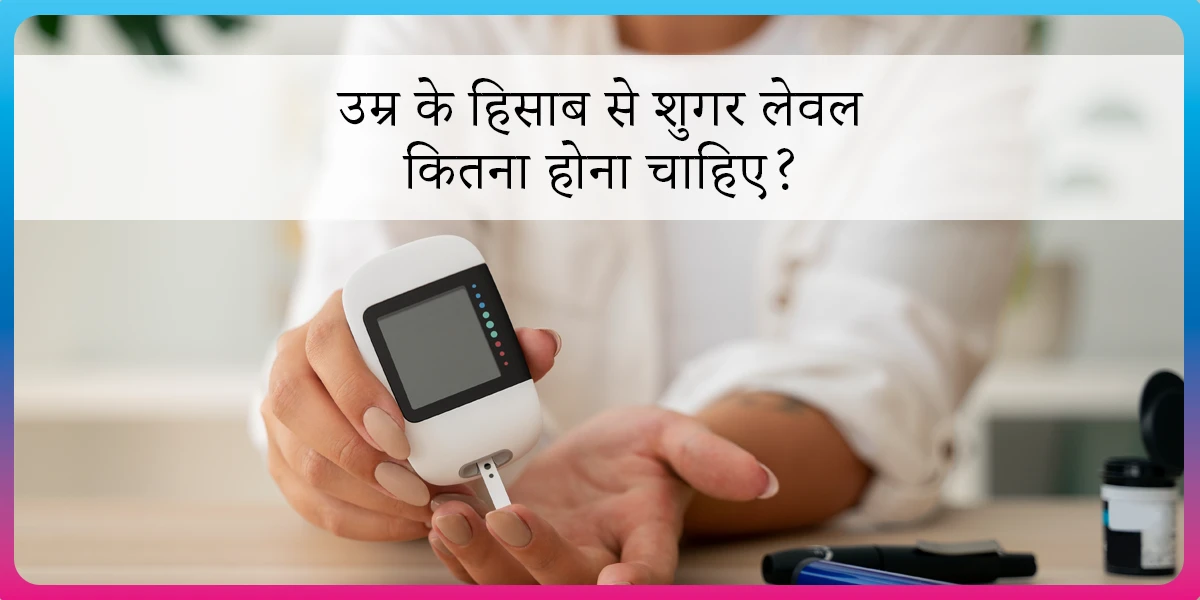How Does High Blood Sugar Affect Your Periods?

Can High Blood Sugar Affect Menstrual Cycle?
If you have irregular periods, you know the struggles you must go through every month. Symptoms like extreme mood shifts, heavy bleeding, cramps, and cravings are just the beginning of the list.
But what if we told you that your blood sugar levels are linked to your extremities? Isn’t it a little concerning?
The whole picture is that everything is related to your hormones. A typical menstrual cycle lasts anywhere between 21 and 35 days. In this timeline, any changes in your hormone level affect ovulation and menstruation. In common words, this affects how your period flows.
All these changes affect the body’s functions as well, and such changes can be more challenging for women with high sugar levels. If you live with high sugar levels, diabetes, or any related problems and wonder about your menstrual cycle, then this article is for you.
To know your chances of Diabetes reversal, take the Diabetes Reversal TestDiabetes Reversal
Calculator
How Does Your Period Affect Your Blood Sugar Levels or Vice Versa?
Everybody knows that the menstrual cycle is affected by the hormone levels in your body. For every person, this level and its subsequent effects are different. Hence, everybody experiences various symptoms and impacts.
The menstrual cycle is controlled mainly by two hormones: estrogen and progesterone. But are you aware that these two hormones are responsible for your blood sugar level?
So, suppose you have an exceptionally high blood sugar level. In that case, it could be attributed to a specific time of your monthly cycle.
When estrogen and progesterone are at their highest peaks, they also impact the release of insulin, the hormone regulating your sugar levels. If your body becomes resistant to the effect of insulin during this time, the blood glucose level might rise.
As we said before, everyone has a different experience. Not everyone can feel the blood sugar levels. If you do, however, the symptoms might include:
- feeling more thirsty
- frequent need to pee
- tiredness and drowsiness
- stomach-ache.
Don’t struggle alone & get the expert care you deserve
How do different hormones affect each of your periods?
Each cycle is different for everyone. The On Track Guide gives us the best guide to help you understand the relationship between your blood sugar level and the menstrual cycle.
There are primarily four hormones that affect the menstrual phase along with blood sugar levels:
- Estrogen
- Progesterone
- Luteinizing Hormone (LH)
- Follicle Stimulating Hormone (FSH)
To understand the effect of these hormones on the blood sugar level, we will take you through the whole cycle day-wise.
Day 1–7: The time of your period!
As estrogen levels take a dip during this phase, the resistance to insulin increases. You might feel your blood sugar level rise during this time.
Day 8–11: Your ovum starts developing!
As the levels of estrogen and progesterone increase gradually, insulin resistance also decreases. Your blood glucose level will be back to normal.
Day 12–14: You are ovulating!
During the period when your body is releasing eggs, hormones like LH, FSH, and estrogen are off the charts. You may experience somewhat varying levels of blood sugar and more insulin resistance. This spike in blood sugar levels can last up to 2–3 days.
Day 15–24: Ovulation is done; period prep starts!
The levels of blood sugar go back to normal during this phase.
Day 25–28: PMS-ing and dreaded periods start!
This is also known as the mid-luteal phase. The levels of estrogen and progesterone are high enough to make the layers of the ovary thick. Increased levels of these hormones mean a higher level of blood sugar and insulin resistance of the hormone insulin a few days before your period starts.
After this, the cycle goes on again.
Don’t struggle alone & get the expert care you deserve


What if you already have diabetes?
Have you found yourself googling any of these questions – Can diabetes cause irregular periods? Or can diabetes cause long periods? Or does blood sugar increase during periods? And finally, can diabetes cause periods to stop? Read on to get an answer to all your questions.
Diabetes can affect menstruation, and menstruation can have its effects on diabetes as well. If you have diabetes, it could be Type 1 or Type 2. Then you’ll go through more noticeable changes.
Such changes will include:
- Libido
- Increased or decreased energy level
- Appetite issues
- Severe mood swings, etc.
One helpful tip is to note their blood sugar levels and menstrual cycle to notice a significant pattern.
The four primary hormones – Estrogen, progesterone, LH, and FSH – affect the menstrual cycle and blood sugar level differently. If your blood sugar level is already high, you may have more issues than otherwise.
High blood sugar levels can increase the risk of an irregular menstrual cycle. Sometimes it can even lead to no ovulation (anovulation).
If you have Type 1 diabetes, you may also risk delayed menarche and early menopause.
If you have Type 2 diabetes, you are more susceptible to endometrial cancer. Although this risk is irrespective of the body weight, it may increase if you’re overweight or obese.
What if you have PCOS?
If you suffer from Polycystic Ovarian Syndrome (PCOS), it is closely related to insulin levels. It affects insulin function, making you more prone to diabetes.
According to a report, around 50% of women with PCOS may have Type 2 diabetes by 40.
Here are some common symptoms of PCOS that you can look out for:
- Irregular periods
- Sudden increase or decrease in weight
- Acne
- Excessive facial hair
- Losing hair on the scalp
- Darkening of the skin around the neck, breasts, and groin
Want to know more about Endometrial cancer?
One of the most common types of cancer that you must be aware of is endometrial cancer.
Endometrial cancer usually happens after menopause. If you have Type 2 diabetes, you have a high risk of it. Insulin resistance increases the risk of this type of cancer. During periods, insulin resistance can increase.
The belief that body mass index (BMI) increases the risk of endometrial cancer is a myth. Type 2 diabetes and endometrial cancer occur irrespective of your BMI.
How to manage your periods and blood sugar levels?
Managing your menstrual cycle and blood sugar level isn’t easy, but it’s not impossible.
If you have Type 2 diabetes, exercising regularly and working towards reducing blood sugar levels can be helpful.
During periods, it is normal to have food cravings. But if you want to keep your blood sugar level low, then it is essential to avoid refined carbs.
Examples of refined carbohydrates include:
- White bread
- Pasta
- Rice
- Cake
- Sodas or energy drinks
- Anything with added sugar
Self-check
Self-regulation is vital in both cases, whether menstruation or high blood sugar levels. You will have to monitor your menstrual and sugar levels regularly. It is essential to avoid excessive consumption of alcohol or smoking.
It is important to note that women with poor blood sugar levels are also at a higher risk of gum problems and other problems such as sore feet, eyes, etc.
What to track:
- Cycle length
- Period duration
- Period flow
- Fatigue
- Blood sugar
- Weight
If you detect any issues with the above-mentioned things. In that case, the best approach is to see a doctor as soon as possible.
At Fitterfly, our expert team of nutritionists, physiotherapists and psychologists are focused on transforming your health through their expertise. This happens through personalized one-on-one sessions, tailor made diet & exercise plans and an in-depth analysis of your overall lifestyle, health and medical history.
Have a look at our Fitterfly’s programs like Fitterfly Weight Loss Program and Fitterfly Diabetes Management Program. They might just be the program you have been looking for!
Speak with us and see how we can make it possible for you.
This blog provides general information for educational and informational purposes only and shouldn't be seen as professional advice.
Don’t struggle alone & get the expert care you deserve














